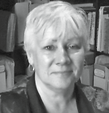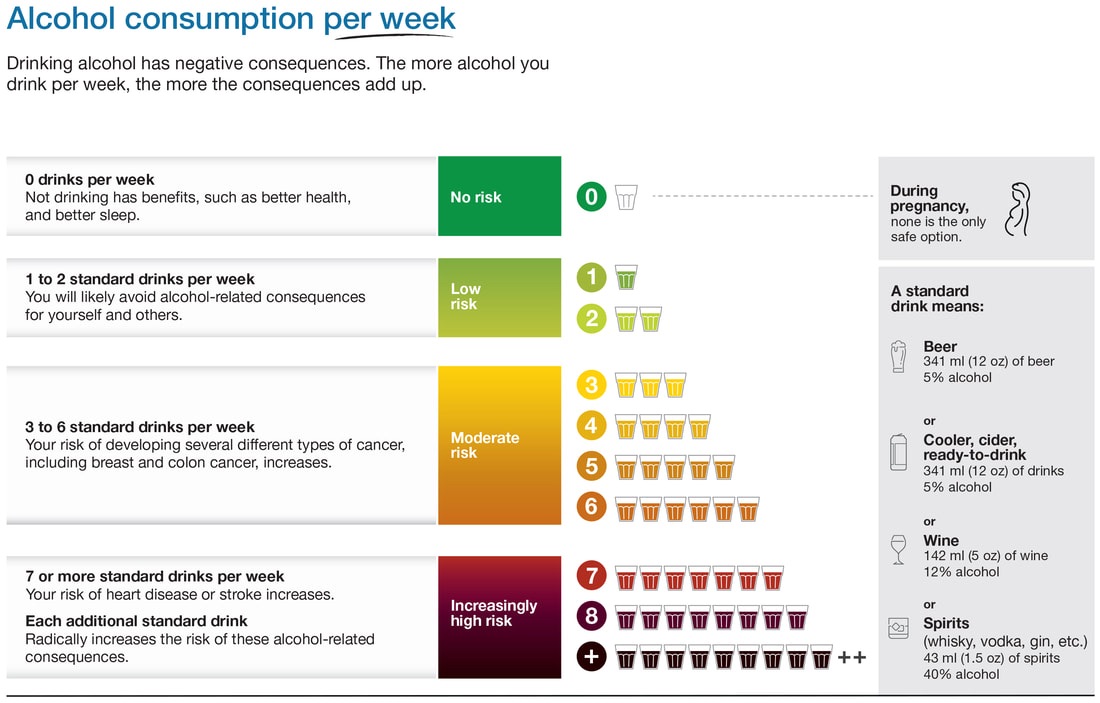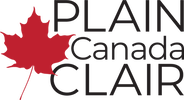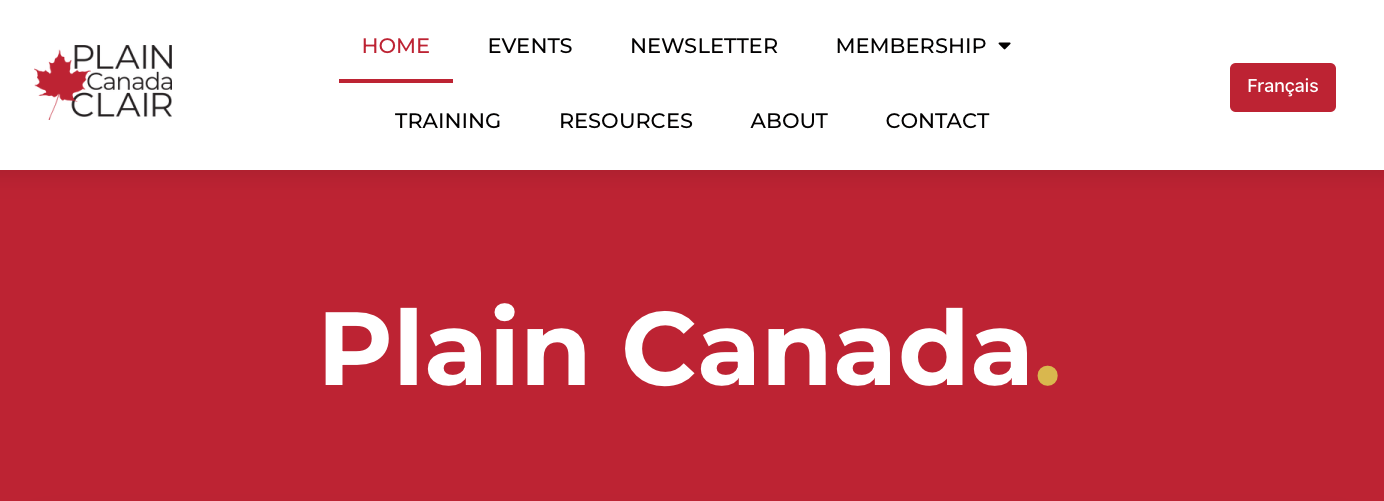|
Hello! We are excited to have started 2024 with our online conference, Language by Design. We’ve summarized the presentations below, and we encourage members to review the recordings on our website after they are posted. Those who registered for the conference should have received links to the recordings. Conference registrants were also eligible for a one-year Plain Canada Clair membership. While our bylaw prevents us from offering full membership to those who are not Canadian citizens or permanent residents, we are offering registrants from outside of Canada a one-time (only for 2024) affiliate membership with access to member services, but no voting rights. We’ll share more information about the benefits of Plain Canada Clair membership over the next few months. If you didn’t register for the conference, we’ll also explain how you can become a member, too. In addition to the conference summary, this issue includes a feature article by Katherine McManus about the International Plain Language Federation (IPLF) committee giving guidance on plain language training and education. Katherine summarizes the results of the IPLF survey on plain language training. Thank you to all who took the time to complete the survey in 2023! As always, we want to provide you with useful programming and resources. Over the past year we have heard many great ideas about what you need to enhance your work as plain language practitioners. We encourage you to contact us to learn about ways you can help us deliver on your ideas—even a few hours a month would be helpful! Please email comments and questions to admin@plaincanadaclair.ca. Thank you Jocelyn Pletz and Chantale Audet 2024 EventsNew: We will begin charging non-members a small fee ($10) to attend our professional development events in 2024. These events will continue to be free for members, and recordings of past presentations will be available in the members-only library. March 18 Le recours au langage clair dans un contexte d’insécurité linguistique : une solution? French-language session by Geoffroy Krajewski April 8 Harnessing ChatGPT English-language presentation by Cheryl Stephens May French-language session (TBD) June Virtual social July and August No programming scheduled Language by Design Conference SummaryOur virtual conference on January 22, 2024, began with Michelle Boulton who welcomed participants and set our agenda for the day. We were honoured to host speakers Julie Clement, Christa Ptatschek, Michelle Boulton, Rowan King, and Katie Stafford. Their informative sessions covered the International Organization for Standardization (ISO) plain language standard, workplace culture and communications strategies, une refonte en langage clair et simple pour vos tableaux et graphiques and building accessible documents.  Julie Clement, president of Clarity International, provided a history of the ISO plain language standard (ISO 24495-1:2023(E)). She emphasized that the standard is Part 1 and that it is a guideline document for practitioners. A key element of the standard is the definition of plain language in section 3.1: communication in which wording, structure and design are so clear that intended readers (3.2) can easily Work is now under way for Part 2, plain legal writing and drafting, and Part 3, science writing and drafting. If you are interested in participating in this work, Julie encourages you to do the following:
For more information, email Julie at president@clarity_international.org.  Christa Ptatschek shared her experiences working on teams responsible for implementing plain language writing and design in the workplace. She gave an overview of the elements that led to successful projects and others that derailed the team and progress.  Michelle Boulton delivered a French-language session outlining how to use plain language writing and design principles to improve tables and graphs. Michelle gave the same presentation in English in 2022, and a recording of that presentation is available in the members-only library.  Rowan King and Katie Stafford provided details on how to build accessible Word, pdf, and html documents. They shared statistics on literacy and disabilities in Canada and emphasized how important it is to write for disabilities you can’t see. For example, you need to consider barriers to access like colour blindness, hearing loss, vision loss, mental health or chronic illness, and cognitive disabilities (such as memory loss, dyslexia, or ADHD). Finally, Michelle Boulton led a guided discussion at the end of the conference to gather feedback about the conference and ideas about what would make Plain Canada Clair a meaningful organization. Participants expressed an interest in more resources and links related to plain language writing and design. We heard you, and we’ll strive to find and share resources. Feature ArticleThe International Plain Language Federation and You: Plain Language Training and Education By Katherine McManus Plain language is worldwide. Three main organizations comprise the formal international plain language network: You probably belong to one or more of these. There is also the informal network of plain language practitioners and smaller organizations (such as Plain Canada Clair) that are focused on local plain language issues and applications. In June 2023, plain language reached a major milestone. The International Organization for Standardization (ISO) published a plain language standard. This accomplishment was possible because the three main organizations formed a volunteer working group, the International Plain Language Federation (IPLF). IPLF is made up of volunteers from the boards of each group. Together they developed the guidelines now published in the ISO standard. At the same time, IPLF also recruited other volunteers from the three main organizations to work on a resource bank for people working in plain language. My role on the IPLF committee was to give guidance on the need for plain language training and education. One of our first tasks was to develop a questionnaire to uncover what plain language practitioners and learners wanted. Many of you (204 to be exact) completed that questionnaire. Most respondents said that you value training. Whether through a one-hour webinar or something much longer, you want to learn more. You would like training that employers and others will recognize and respect. You specifically appreciate training that is workshop-based and that gives you practice writing and revising with the help of an expert instructor. You are looking for ways to bring plain language into your workplace and help co-workers understand and respect it as a strategic process, not just an add-on once a document has been written. You are also looking for resources—something you can turn to when you need examples of or statistics about the usefulness of plain language. Finally, you are looking for timely, appropriate, and easily retrievable information housed in one location. Our IPLF committee is now focused on these needs. We are working toward an online resource bank of information about clear communication, such as:
This list is not the limit of our committee’s work, but rather a beginning. Survey respondents identified several gaps in the training and education currently available. Our committee will work to close those gaps. If you have something you feel might be useful as part of this resource bank, please email me at admin@plaincanadaclair.ca. Center for Plain Language ClearMark AwardsThe ClearMark Awards recognize excellence in plain language communication—in English, French, and Spanish—in North America. Congratulations to the 2023 Canadian winners Autrement dit and the Canadian Centre on Substance Use and Addiction, who were recognized for their submission Résumé grand public des Repères canadiens sur l’alcool et la santé, Canada’s Guidance on Alcohol and Health, Public Summary. They received the ClearMark Award in both the Infographics category and the French Language category. Their submission also won the Grand ClearMark Award. This was the first time a French entry has won the grand prize. The winning infographic was produced in collaboration with Michelle Boulton of 3c publications. To find out more about the 2023 ClearMark Award winners, visit the Center for Plain Language.  Autrement dit created an infographic (see portion above) that summarizes the recommendations in Canada’s Guidance on Alcohol and Health in simple terms and illustrations. To see the complete inforgraphic, visit the Canadian Centre on Substance Use and Addiction website (https://www.ccsa.ca/canadas-guidance-alcohol-and-health-public-summary-drinking-less-better-infographic).
|
Archives
May 2023
CategoriesSubscribe to our newsletter.
|
© COPYRIGHT 2021. All rights reserved. Tous droits réservés.


 RSS Feed
RSS Feed